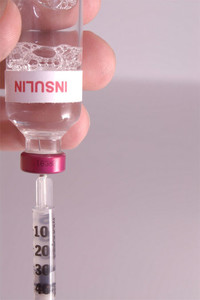India-based biologicals specialist Biocon announced on 28 March 2016 that it had received approval from Japan’s Ministry of Health, Labour and Welfare (MHLW) for its insulin glargine biosimilar.
The product is a biosimilar of French drugmaker Sanofi’s blockbuster diabetes drug, Lantus (insulin glargine) [1]. Lantus generated an estimated US$6.3 billion in net sales income globally for Sanofi in 2014.
The approval of the insulin glargine biosimilar was obtained based on successful completion of initial development by Biocon and completion of phase III clinical studies carried out in Japan in over 250 type 1 diabetes patients by Biocon’s local partner Fujifilm Pharma.
Biocon’s biosimilar will be provided as a ready-to-use, pre-filled disposable pen with 3 mL of 100 IU insulin glargine. Biocon expects to launch the biosimilar in the first quarter of 2017 and is hoping to capture a significant share of the Japanese insulin glargine market. The Japanese market for insulin glargine is largely dominated by disposable pens and is estimated to be worth US$144 million, making it the second largest market outside of North America and Europe.
Japan’s MHLW has already approved another insulin glargine biosimilar. Partners Eli Lilly and Boehringer Ingelheim received Japanese regulatory approval for their biosimilar insulin glargine product (LY2963016) in January 2015 [1].
Biocon, in partnership with US-based Mylan, has global phase III clinical trials ongoing for candidate biosimilars of adalimumab, bevacizumab, pegfilgrastim and trastuzumab [2]. The company also has six ‘similar biologics’, including insulin glargine, trastuzumab, epoetin alfa, human insulin, streptokinase and filgrastim, approved in India [3].
Editor’s comment
It should be noted that ‘similar biologics’ approved in India might not have been authorized following as strict a regulatory process as is required for approval of biosimilars in the European Union. The EMA (European Medicines Agency) regulatory requirements ensure the same high standards of quality, safety and efficacy for biosimilars as for originator biologicals, and also include a rigorous comparability exercise with the reference product.
Related article
Biosimilars approved in Japan
References
1. GaBI Online - Generics and Biosimilars Initiative. Japanese approval for insulin glargine biosimilar [www.gabionline.net]. Mol, Belgium: Pro Pharma Communications International; [cited 2016 Apr 1]. Available from: www.gabionline.net/Biosimilars/News/Japanese-approval-for-insulin-glargine-biosimilar
2. GaBI Online - Generics and Biosimilars Initiative. Indian drugmakers make progress with candidate biosimilars [www.gabionline.net]. Mol, Belgium: Pro Pharma Communications International; [cited 2016 Apr 1]. Available from: www.gabionline.net/Biosimilars/News/Indian-drugmakers-make-progress-with-candidate-biosimilars
3. GaBI Online - Generics and Biosimilars Initiative. ‘Similar biologics’ approved and marketed in India [www.gabionline.net]. Mol, Belgium: Pro Pharma Communications International; [cited 2016 Apr 1]. Available from: www.gabionline.net/Biosimilars/General/Similar-biologics-approved-and-marketed-in-India
Permission granted to reproduce for personal and non-commercial use only. All other reproduction, copy or reprinting of all or part of any ‘Content’ found on this website is strictly prohibited without the prior consent of the publisher. Contact the publisher to obtain permission before redistributing.
Copyright – Unless otherwise stated all contents of this website are © 2016 Pro Pharma Communications International. All Rights Reserved.








 0
0











Post your comment